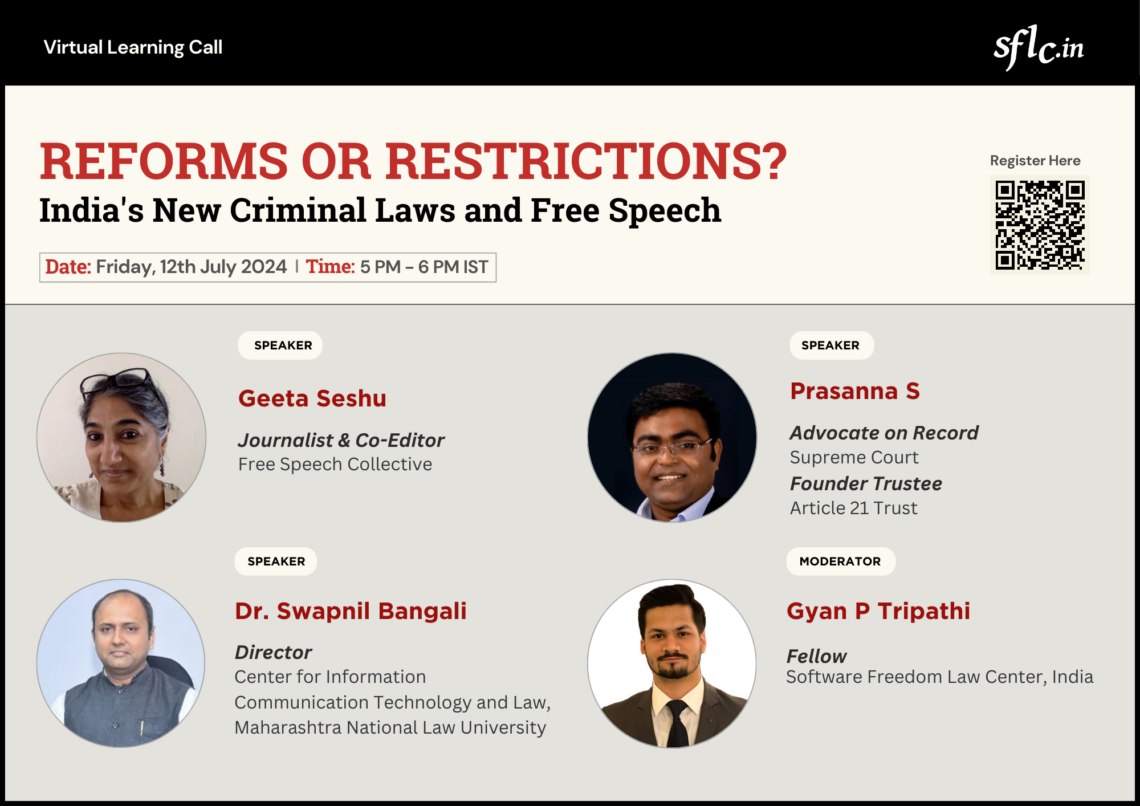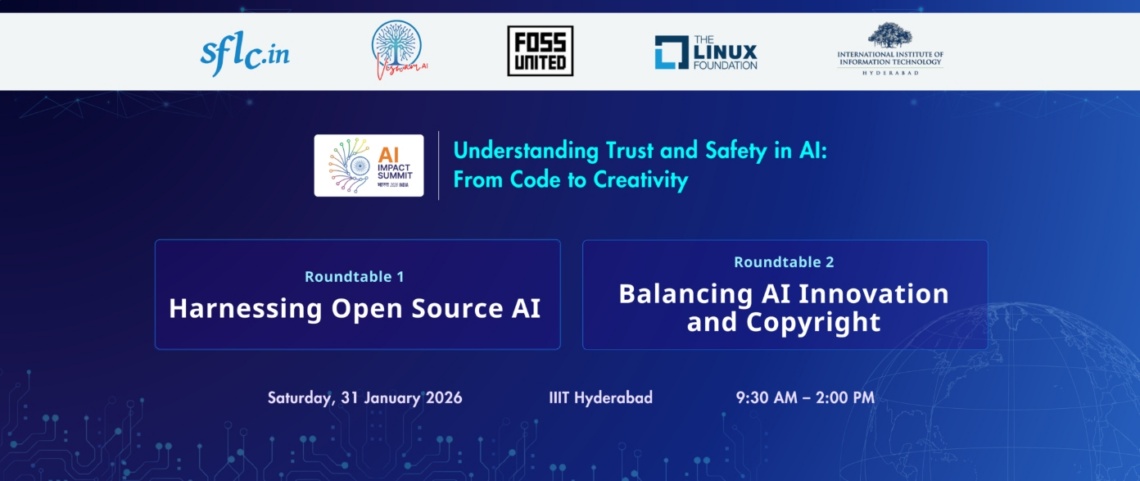On 12 July 2024, the Software Freedom Law Center, India (SFLC.in) hosted a virtual learning call on “Reforms or Restrictions: India’s New Criminal Laws and Free Speech.” The learning call was organized in light of the three new criminal laws, Bharatiya Nyaya Sanhita (BNS), Bharatiya Nagarik Suraksha Sanhita (BNSS), and Bharatiya Sakshya Adhiniyam (BSA).
Our expert panel included Geeta Seshu, Journalist and Co-Editor of Free Speech Collective; Prasanna S, Advocate on Record at the Supreme Court and Founder Trustee of Article 21 Trust; and Dr. Swapnil Bangali, Advocate and Director of CICTL, MNLU. Gyan Tripathi, Fellow of SFLC.in, moderated the session.
The call explored the implications of new criminal laws on free speech, emphasizing their impact on journalists, activists, and broader society. The discussion began with an overview of the new laws, noting that while they retain many old provisions, there is an attempt to “Indianize” legal language instead of introducing any new or progressive provisions. Additionally, concerns were raised about the broad and vague terminology used in the new offenses, which could be misused to target journalists and activists for reporting incidents that might cause public disorder.
The discussion also covered the colonial legacy of the old laws, with new measures introduced to ensure transparency, such as mandatory videography during searches and seizures. However, it was emphasized that the effective implementation of these procedures would require significant time, infrastructure, and training for law enforcement. The inadequacy of search and seizure procedures for digital evidence was another major concern, with an emphasis on the need for purpose limitation when searching digital devices.
Furthermore, the call also addressed the process by which the new laws were passed and was criticized for its lack of deliberation and constitutional concerns, particularly during the suspension of numerous MPs. It was noted that the new laws did not decriminalize any existing offenses, missing an opportunity to improve press freedom rankings.
The impact of the new laws on digital privacy was discussed extensively. It was highlighted that journalists often face significant privacy invasions, with their digital devices being seized without proper protection, affecting their ability to securely store sensitive information. The importance of reasonable and legal search and seizure operations was stressed, with careful handling of digital devices to ensure evidence integrity. The need for procedural safeguards for digital evidence collection to protect privacy rights was also emphasized.
The panel also discussed criminal defamation and its significant burden on journalists, with skepticism about the feasibility and effectiveness of community service as a punishment in India. Another critical point was the inadequacy of the new laws in effectively addressing hate speech. The balance between free speech and protection from hate speech was a recurring theme. It was highlighted that the current laws lack clear guidelines on defamation and hate speech.
In the concluding remark, the upcoming Digital India Act was mentioned as a potential means to address these issues more comprehensively, with segmented laws for different digital offenses.
You can watch the full session here: https://youtu.be/qMJJrYz1Ad4?si=KnlkgxvqPTm_6X6N




